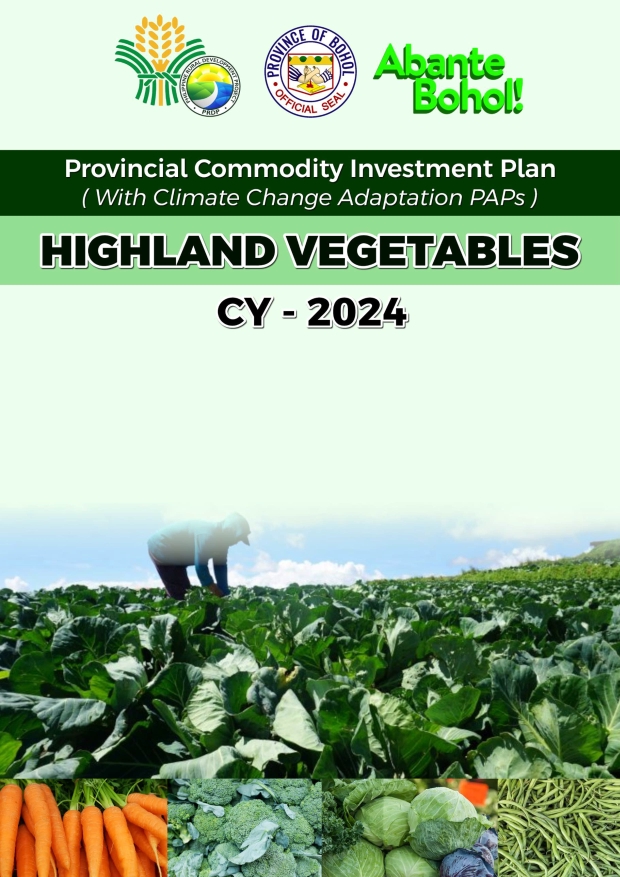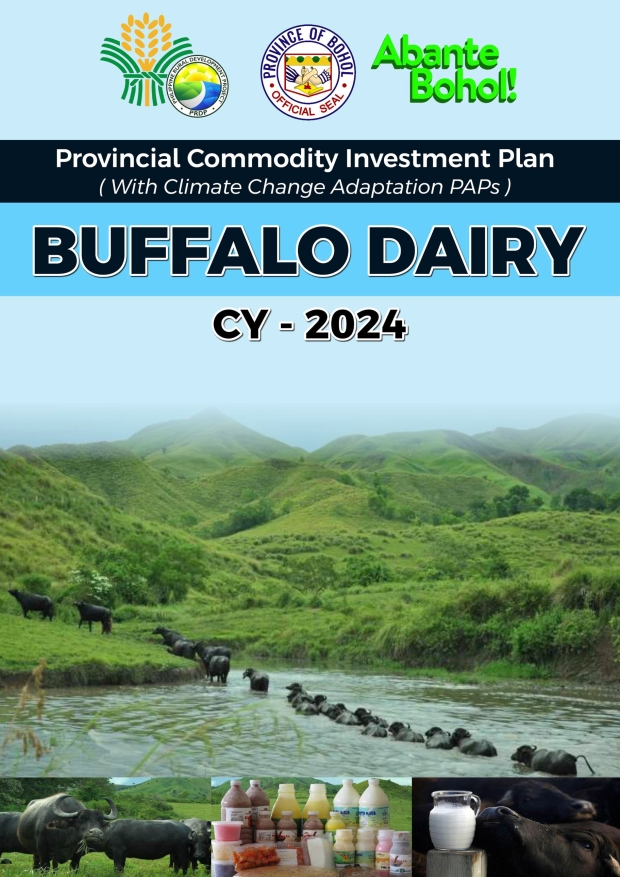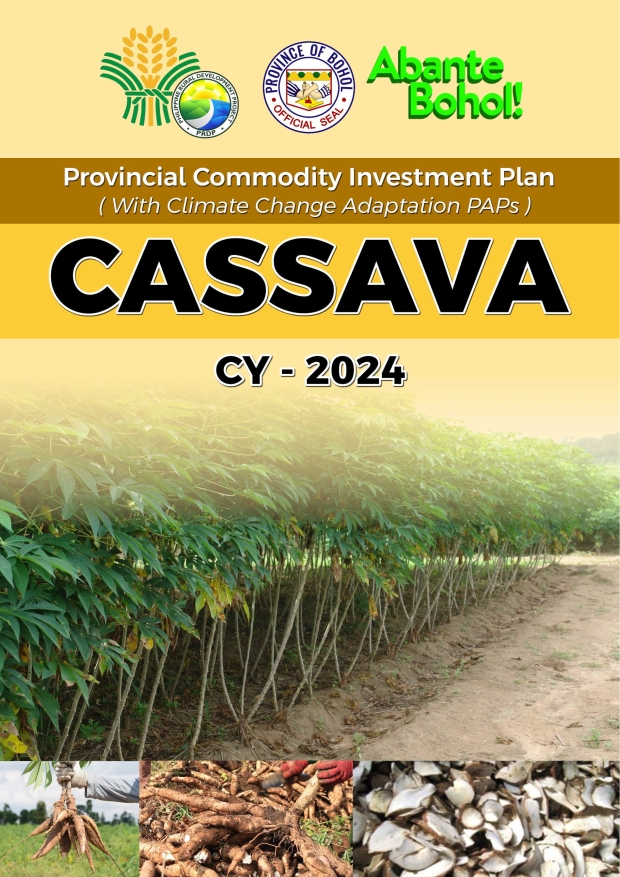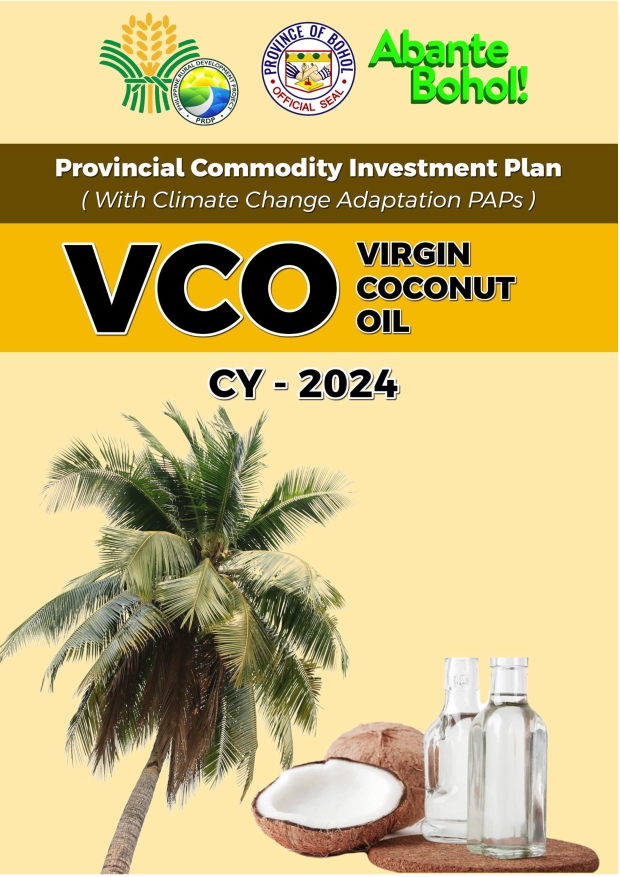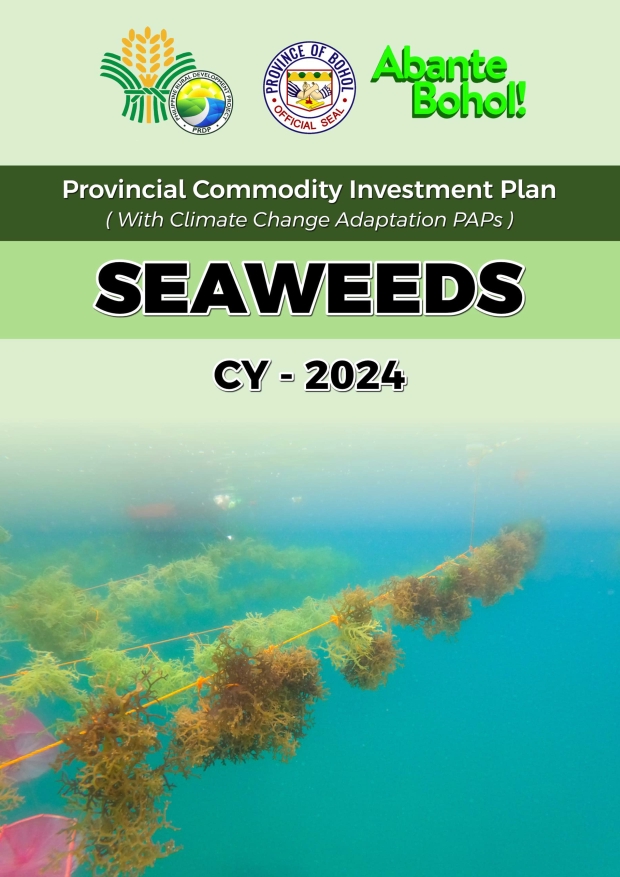Bohol is one of the selected recipient provinces of the Philippine Rural Development Project (PRDP). The project is designed to establish an exclusive and market-oriented agri-fishery sector through strategic investments in priority commodity value chains. It is a poverty reduction program that aims to improve the incomes and food security of the rural poor. Externally, it will focus on expanding market access and improving competitiveness. Through a Memorandum of Agreement, the Department of Agriculture (DA) and the Province of Bohol have come into a joint partnership in implementing the PRDP. Both the DA and the Province will partner with Local Government Units (LGUs) and the private sector in providing key infrastructure, facilities, technology, and information that will raise incomes, productivity, and competitiveness in the countryside.
One of the requirements of PRDP is the formulation of the Provincial Commodity Investment Plan (PCIP). The PCIP is a 3-year rolling plan based on the value chain analyses of the commodities conducted with strong participation of the various stakeholders in the chain. Moreover, it is a strategic plan that rationalizes the interventions within the various segments of the value chain of commodities. These interventions are significant to the province and will contribute to the national goals of the agriculture and fishery sector. The PCIP be the basis for selecting eligible interventions and subprojects for funding PRDP’s I-BUILD and I-REAP project components. However, the PCIP is not only focused on the investments of PRDP but also leveraging resources from other National Government Agencies (NGAs) and the private sector.
Furthermore, the PCIP reflects agreements between DA Regional Field Office (DA-RFOs), Provincial LGUs with strong participation of the various stakeholders and other government agencies in the context of convergence to leverage resources in helping develop the province’s agri-fishery sector. It aims to maximize the synergy among various players of the value chain (industry players and enablers), and the PCIP represents an overarching platform for expanding opportunities in the value chains. The PCIP not only rallies around the value chains that are being prioritized, but generates commitment to address the identified bottlenecks of the value chain (VC) based on the results of VC analysis.
The adopted planning approach for PCIP formulation is anchored on the use of the value chain approach (VCA) to objectively identify interventions to develop or enhance priority commodities. A value chain is defined as the full range of activities that are required to bring a product or service from conception, through the different phases of production (involving a combination of physical transformation and the input of various producer services), delivery to final customers, and final disposal after use. It involves an analysis of the vertical and horizontal process and players that add value to the product.
To enhance the value chain approach of planning, scientific tools are used, such as the expanded Vulnerability and Sustainability Assessment (E-VSA). It is a user-based online tool available at the PRDP website that uses the VSA result as a database and is collaborated with socio-economic parameters. A map will be generated as visual presentation of municipal ranking based on the parameters used per commodity.
Another important tool used to identify priority commodities is the Commodity Prioritization Tool (CPT). The major criteria for this tool are: suitability, market potential, impact on the poor, and the number of beneficiaries. The identified priority commodities of the province ranked as the result of the CPT are the following: coconut, dairy, native chicken, high-value vegetables, cassava, inland fishery, mariculture (seaweed), swine, cacao and coffee. These identified commodities are important to agricultural development will undergo the value chain analysis and will be integrated into the PCIP.
To ensure the successful implementation of the Project, the Governor issued Executive Order No. 05, Series of 2015, creating the Provincial Core Planning Team (PCPT) that is chaired by the Provincial Agriculturist. The PCPT is tasked as the principal mechanism through the PCIP will be prepared. The enhanced PCIP rationalizes the interventions within the various segments of the value chain of identified significant priority commodities and will contribute toward the vision of the strong and balanced agri-industrial province.
The Bohol PCIP had undergone series of consultation with various stakeholders. After the National Project Coordination Office (NPCO) issued a No Objection Letter (NOL) for the Value Chain Analysis of the priority commodity, it is presented to the Provincial Governor, the Provincial Project Management Implementing Unit (PPMIU) and to the PCPT. The PCPT starts integrating the approved commodity to the PCIP after it is presented. The planning process being participatory includes technical reviews and stakeholders’ consultation with various actors along the chain from the input supplier, producer, processor and traders. All six (6) priority commodities of the province will be subjected to a Stakeholder’s Consultation. The final PCIP is presented to the Provincial Development Council (PDC) for approval and endorsement to the Regional Project Coordination Office (RPCO) for inclusion to the Regional Development Investment Program (RDIP) for possible funding by other agencies. The approved PCIP serves as the basis for identifying eligible I-REAP and I-BUILD subprojects. Likewise, the PLGU also uses the PCIP to mobilize resources from other sources such as other NGAs, Non-Government Organizations (NGOs) and the private sector.


